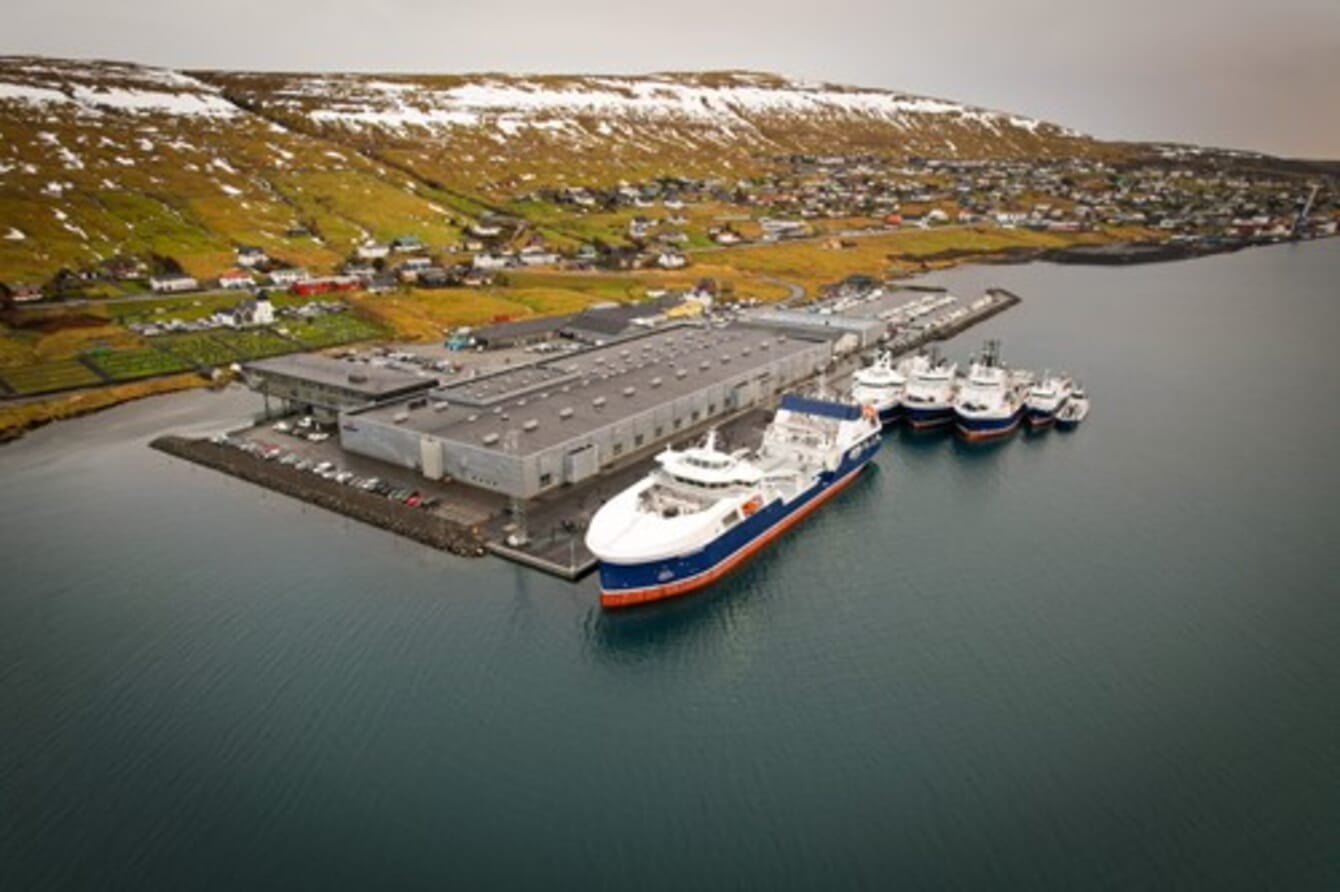
The wellboat is capable of transporting - or treating - 1,000 tonnes of salmon at a time © Bakkafrost
A reception at the headquarters at Glyvrar with the Bakkafrost board members and senior management, Aksel V Johannesen, prime minister of the Faroe Islands and other government representatives welcomed the ship and its crew members to the Faroe Islands, after making the journey from the Sefine Shipyard in Turkey, where the construction of the highly technological vessel commenced in the summer of 2020 and was completed in December 2022, when Bakkafrost took delivery of the vessel.
Bakkafossur can carry up to 1,000 tonnes of live salmon and is regarded as a huge upgrade to secure sustainable operations in the future. In addition to the five diesel-electric engines, the vessel is equipped with large batteries, ensuring an approximately 20 percent increase in energy efficiency. The strategic placement of the engines on the top deck secures the opportunity for a swift change to sustainable energy solutions when such are available on the market.
Equipped with reverse osmosis technology for de-salination of water with a production capacity of 6,000 tonnes of freshwater a day, Bakkafossur adds significant freshwater treatment capacity to Bakkafrost’s operations in the Faroe Islands. Treating salmon with freshwater is an efficient way to rinse the gills, restore gill health and ensure more robust and healthy growth. In addition, Bakkafossur will be equipped with an FLS sea-lice removal system, increasing biosecurity in line with Bakkafrost’s sustainability strategy.
Bakkafossur is also prepared for offshore farming.
In his speech at the reception, Regin Jacobsen, CEO of Bakkafrost, said: “We need to see an increase in the supply of sustainable protein. Aquaculture - and salmon farming in particular - is regarded as one of the best solutions for sustainable food production when considering sustainability in the broadest sense. The Faroe Islands offer many opportunities – thus it is of vital importance that the will, skills and regulations facilitate the utilisation of these opportunities. With Bakkafossur, we take a huge step towards both offshore farming and more sustainable operations. Our vision for the Faroe Islands is to increase our production output significantly to increase the general supply of sustainable ocean food, contributing to the sustainable transformation of the world’s food system.”


